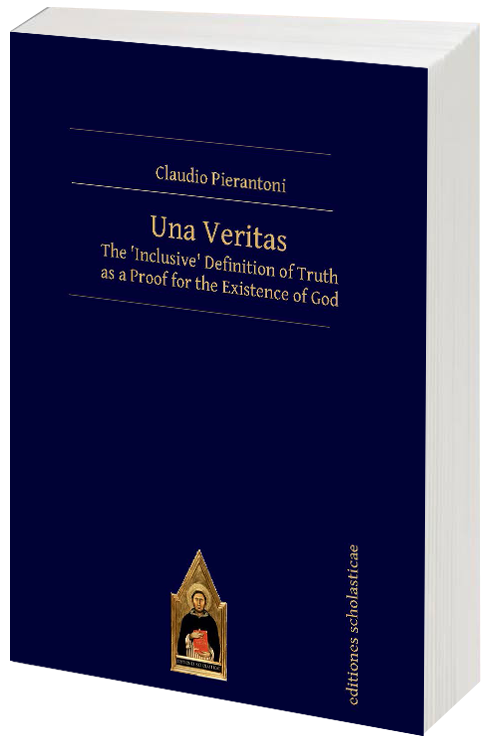The ‘Inclusive’ Definition of Truth as a Proof for the Existence of God
Claudio Pierantoni
Abstract
This work proposes a new proof of the existence of God, based on a development of elements found in Patristic and Scholastic philosophical tradition, in particular of St. Augustine, St. Anselm and St. Thomas Aquinas. Traditionally the existence of God has been seen in relation to the essence of Truth: its unchanging and eternal essence is used as a proof of the eternal existence of a personal God. The strategy of our demonstration is to investigate the concept of Truth from the perspective of a definition, which can be called “inclusive”: it proposes to formulate, complementary to formal, purely abstract definitions of Truth, also a definition that includes the real personal elements that are necessarily implied in the abstract definition. It shows the necessity of including in it, in the first place, the primary Real Being, God, which is also the primary Intellect; and, related to it, our finite, human intellect, not necessary in itself, but of course essential to our very nature.
With a Preface by Josef Seifert and a Post-Script with a Dialogue about the Ontological Argument.
About the Author
Claudio Pierantoni is Professor of Medieval Philosophy at the University of Chile
(Universidad de Chile) and Professor of Latin Literature at the Universidad de los Andes, Chile. He was former Professor of Church History and Patrology at the Faculty of Theology of the Catholic Pontifical University of Chile (Pontificia Universidad Católica de Chile).


